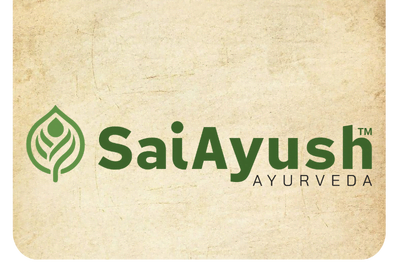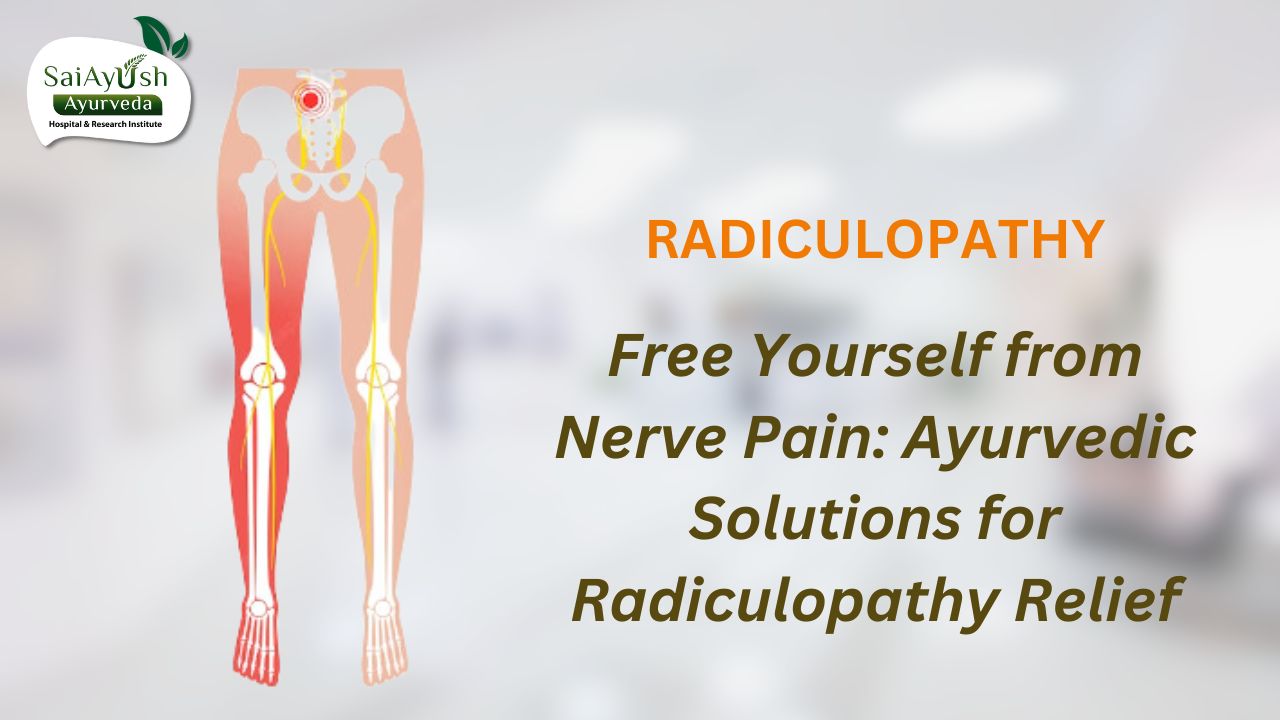Radiculopathy Introduction
Radiculopathy is a common condition that affects the nerves and causes pain and discomfort. We can drill down to the causes, risk factors, and different types of radiculopathy. Furthermore, we will explore the insights of Ayurveda, the ancient Indian system of medicine, and discover effective Ayurvedic treatments and remedies to alleviate radiculopathy symptoms.
What is Radiculopathy?
Radiculopathy is a condition characterized by the compression or irritation of nerve roots in the spine, leading to pain, weakness, and numbness in the areas supplied by those nerves.
What leads to Radiculopathy?
Several factors can contribute to the development of radiculopathy. One common cause is a herniated disc, which compresses nearby nerve roots. Spinal stenosis, a narrowing of the spinal canal, can also lead to nerve compression and radiculopathy.
Degenerative disc disease,, can cause radiculopathy as well. As the discs lose height and water content, the space between vertebrae decreases, leading to nerve root compression.
Trauma or injury to the spine, such as fractures, dislocations, or excessive pressure on the spinal cord, can result in radiculopathy. Tumors, both benign and malignant, can grow in or around the spinal cord, leading to nerve compression and subsequent radiculopathy
Infections, such as spinal epidural abscesses or viral infections affecting the nerves, can also contribute to radiculopathy. Inflammatory conditions like rheumatoid arthritis or ankylosing spondylitis may cause inflammation and subsequent compression of nerve roots.
Additional causes, including osteoarthritis, spondylolisthesis, and osteophyte formation, can also contribute to radiculopathy.
Risk factors :
- Age-related degenerative changes in the spine
- Herniated discs or spinal stenosis
- Trauma or injury to the spine
- Obesity
- Poor posture
- Repetitive motions
- Occupation-related stress on the spine
- Medical conditions like arthritis or diabetes
- Smoking
- Sedentary lifestyle
These risk factors contribute to the development of radiculopathy, and understanding them can aid in the prevention and effective management of the condition.
Types of Radiculopathy
Radiculopathy can manifest in different regions of the spine, resulting in specific types of symptoms.
- Cervical radiculopathy affects the neck region, leading to pain, tingling, and weakness in the arms and hands.
- Lumbar radiculopathy affects the lower back, buttocks, and legs, causing similar symptoms in the lower extremities.
- Thoracic radiculopathy, although less common, affects the mid-back region, leading to pain and discomfort in the chest and abdomen.
Knowing deeply about Radiculopathy in Ayurveda
Radiculopathy, which affects the nervous system, is primarily brought on by imbalances in the Vata dosha, according to Ayurvedic principles. Ayurveda emphasizes a broad approach to healing, focusing on restoring balance and harmony in the body, mind, and spirit.
Relief from radiculopathy with the helping hands of Ayurveda
Panchakarma: Panchakarma treatments, such as Abhyanga (therapeutic oil massage), Swedana (herbal steam therapy), and Basti (medicated enema), can provide relief from radiculopathy symptoms.
Abhyanga means massage with medicated oil that the doctor prescribes according to the condition and body constitution of the patient.
Swedana is the steam therapy used for detoxifying and reestablishing the doshas.
Basti (medicated enema) is considered ardha chikitsa because it can cure most diseases. It comes of different forms and is prescribed according to the condition of the patient.
Herbal Remedies: Ayurvedic herbs like Ashwagandha, Shatavari, and Guggulu have anti-inflammatory and analgesic properties that can help reduce pain and inflammation associated with radiculopathy. These herbs can be consumed orally or used topically in the form of oils and ointments.
Yoga and Meditation: Practicing gentle yoga asanas and meditation techniques can promote flexibility, strengthen the back muscles, and improve overall well-being. Yoga postures like Bhujangasana (Cobra pose) and Shalabhasana (Locust pose) specifically target the spine and can be beneficial for radiculopathy.
Diet and Lifestyle Modifications: Ayurveda emphasizes the importance of a balanced diet and healthy lifestyle habits. Including warm, nourishing foods, avoiding processed and junk foods, and maintaining a regular sleep schedule can support the healing process.
Conclusion
Radiculopathy can be a debilitating condition, but with the holistic approach of Ayurveda, you can find relief and improve your quality of life. Sai Ayush Ayurveda the best Ayurvedic hospital that specializes in treating radiculopathy and experience the natural healing power of Ayurvedic treatments. Embrace the gentle wisdom of Ayurveda to restore balance, alleviate pain, and regain your vitality.
Discover the healing power of Ayurveda with our latest article at Sai Ayush Ayurveda Hospitals! Dive into the age-old wisdom that can rejuvenate your body and mind. Click here to read more:





0 Comments